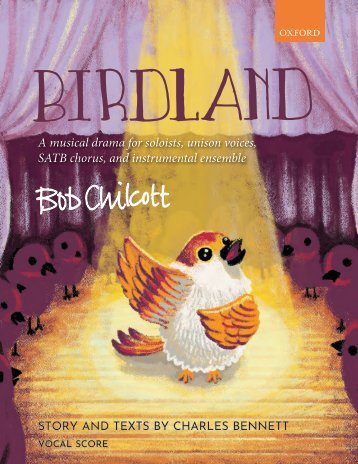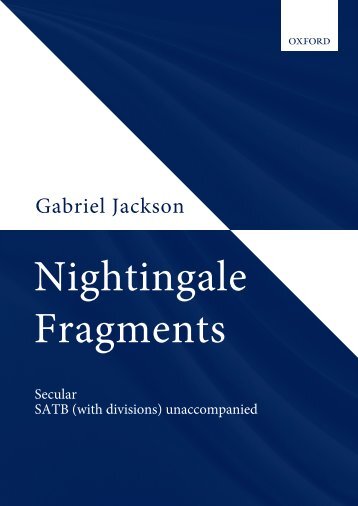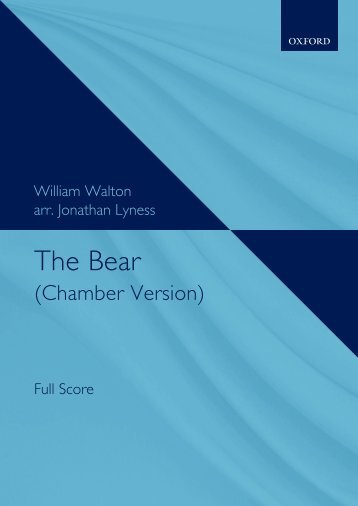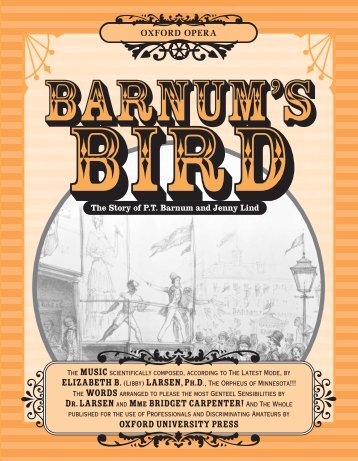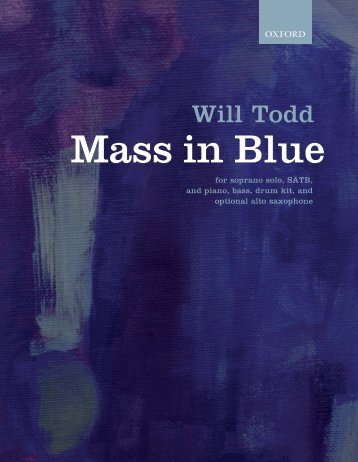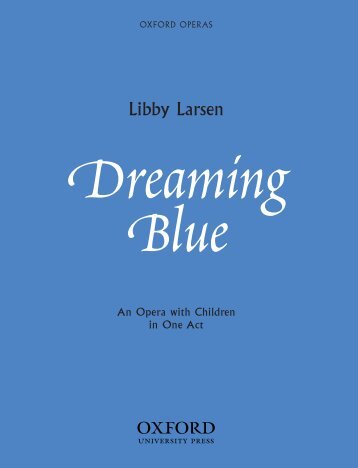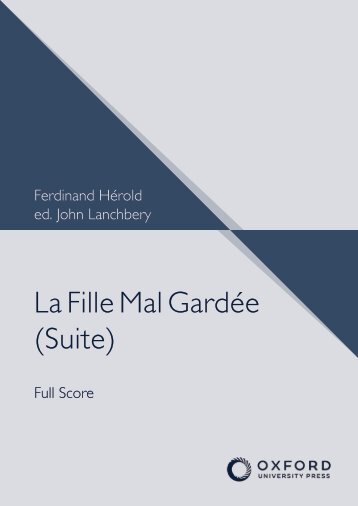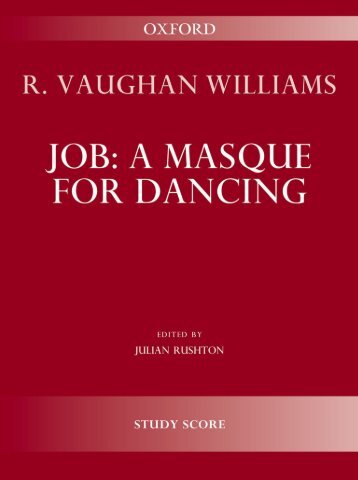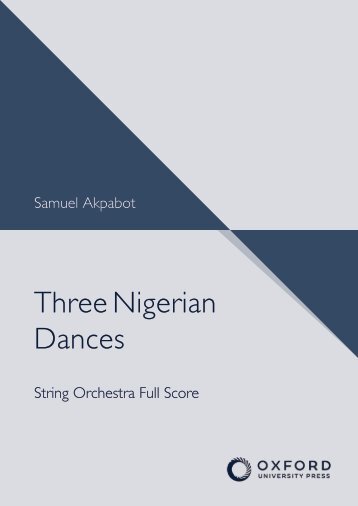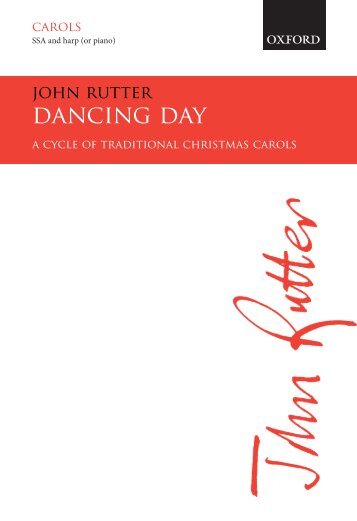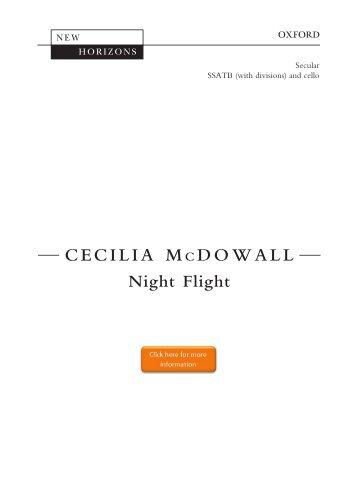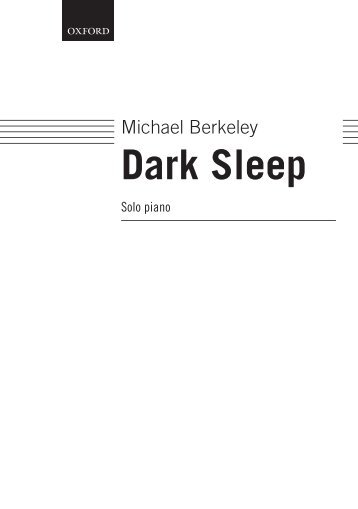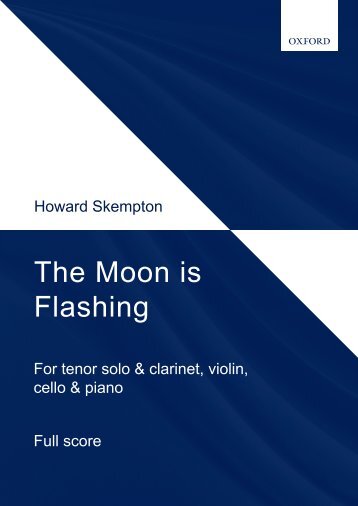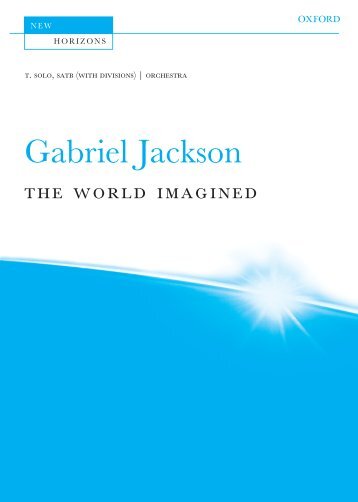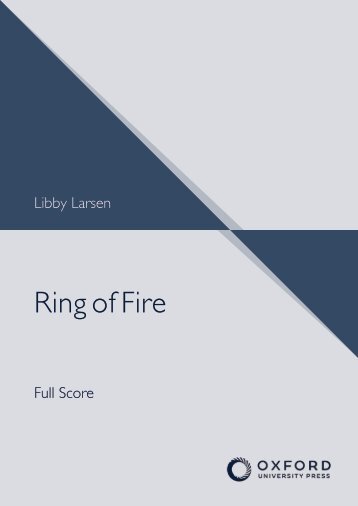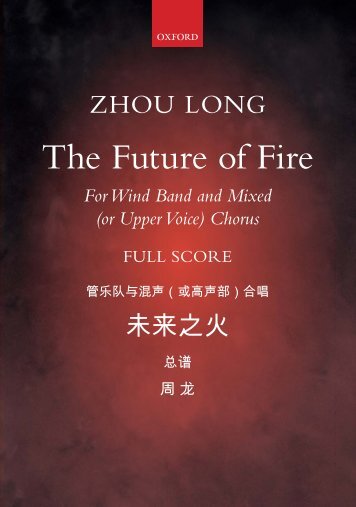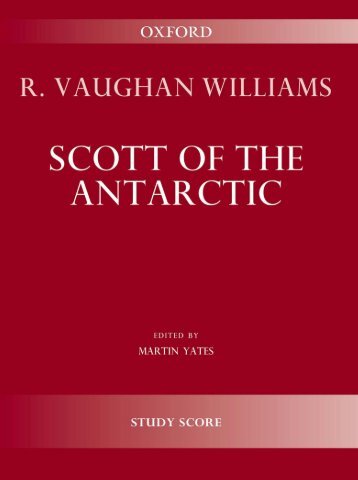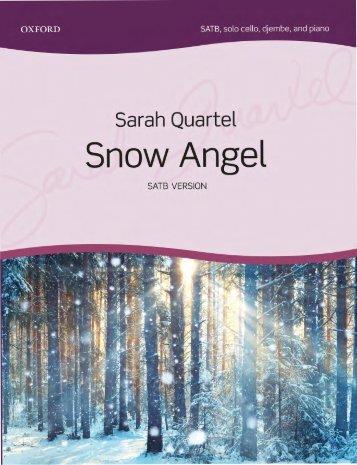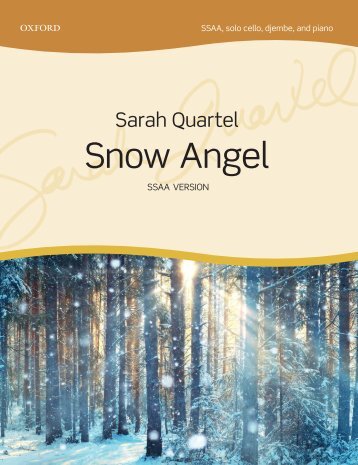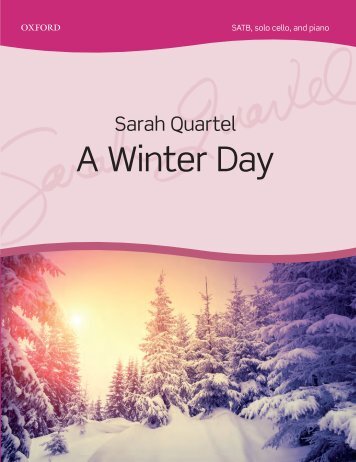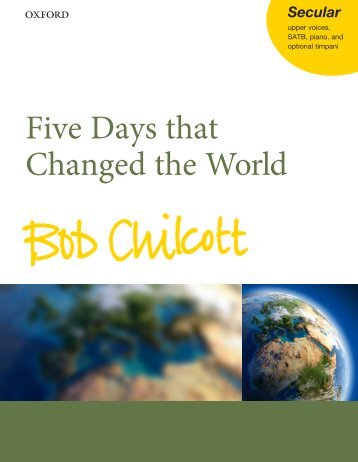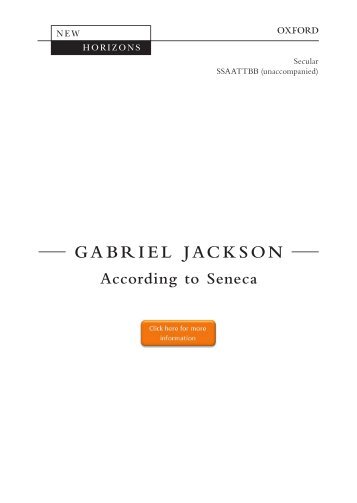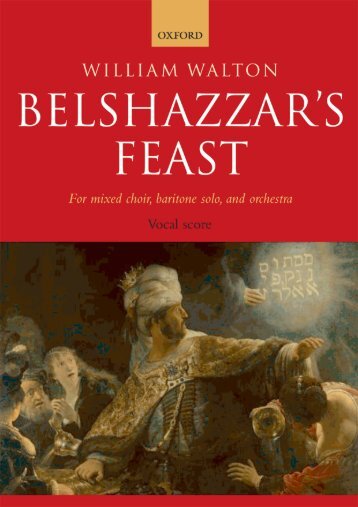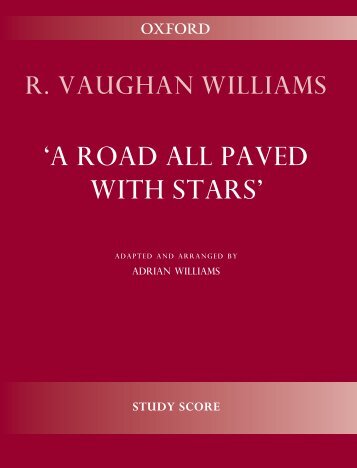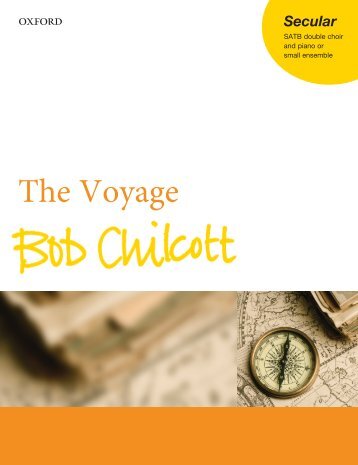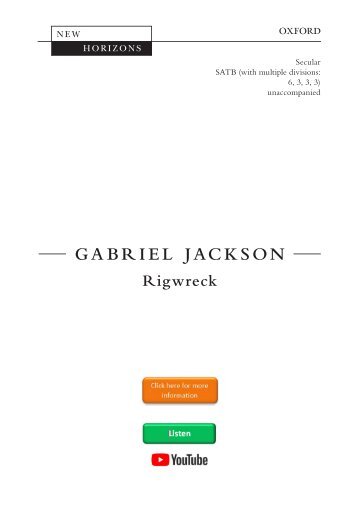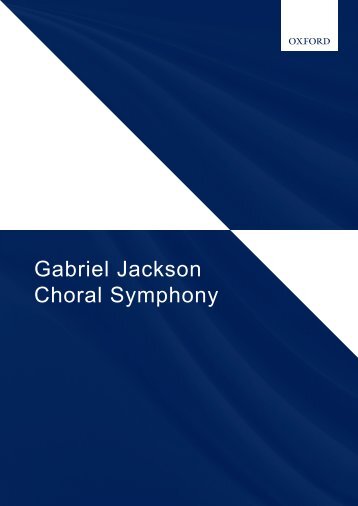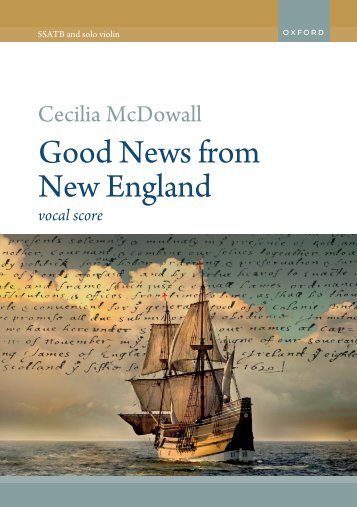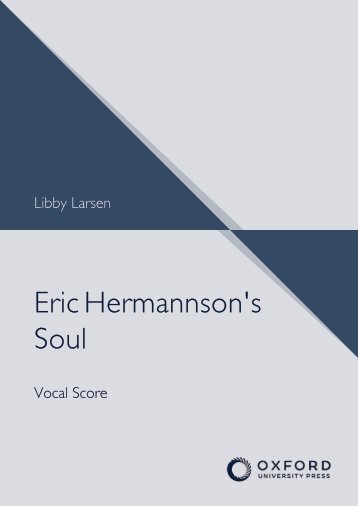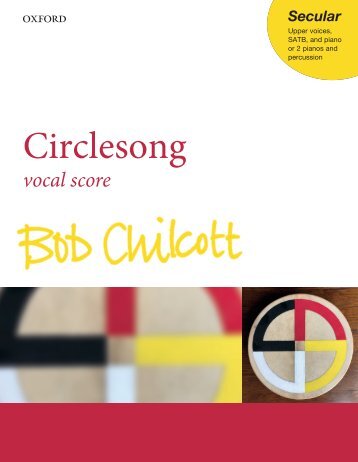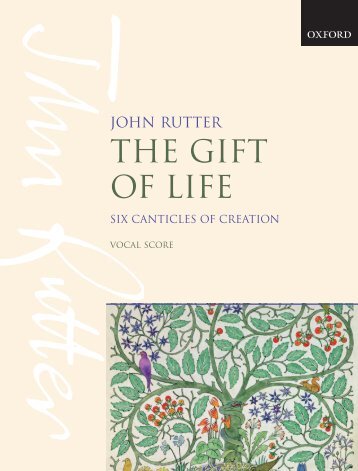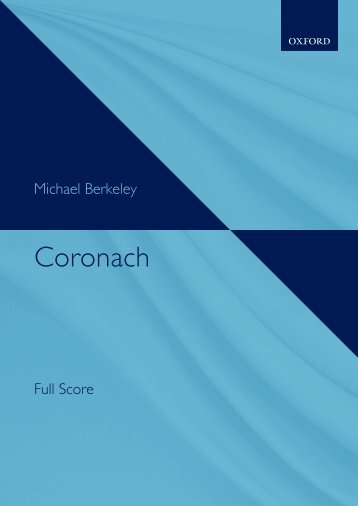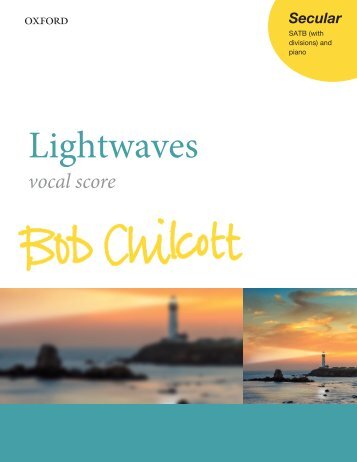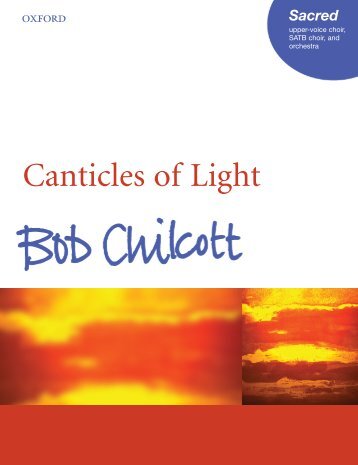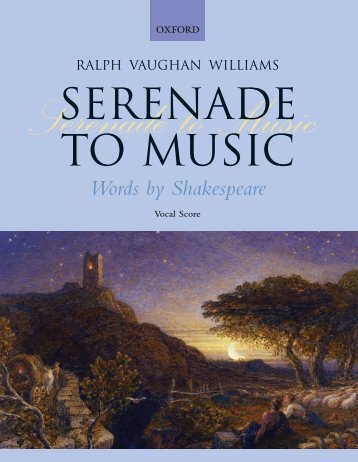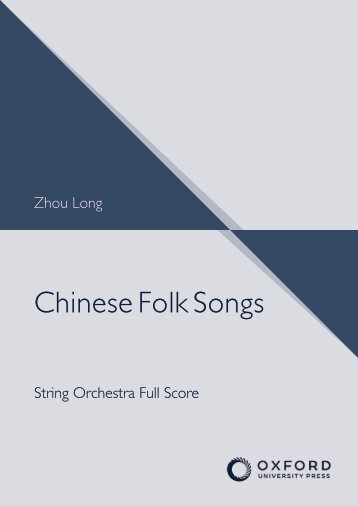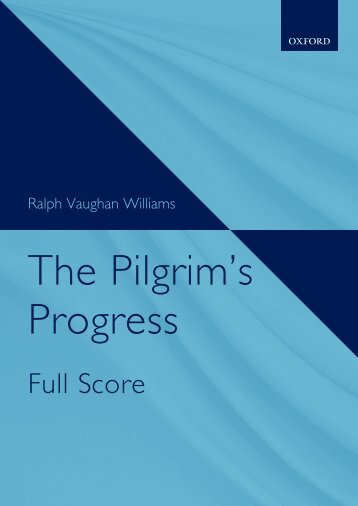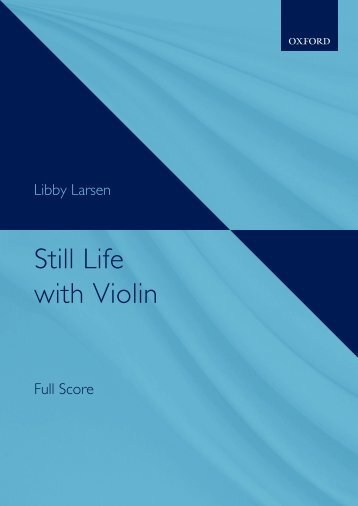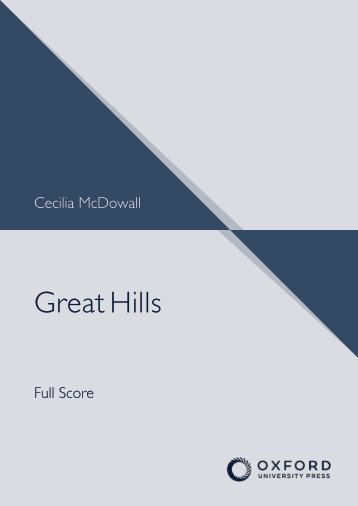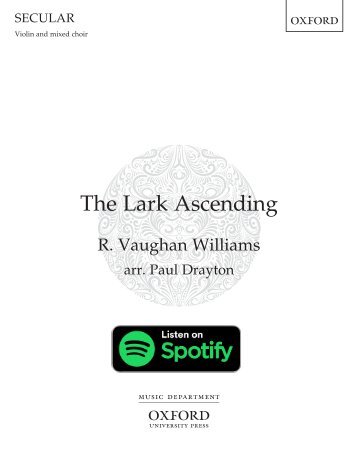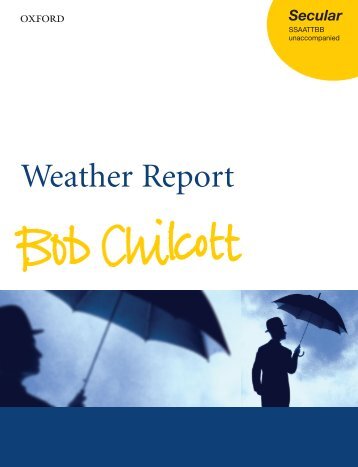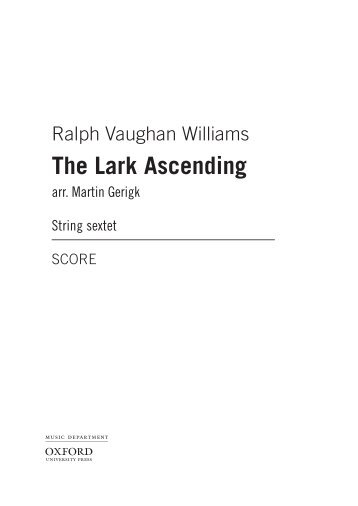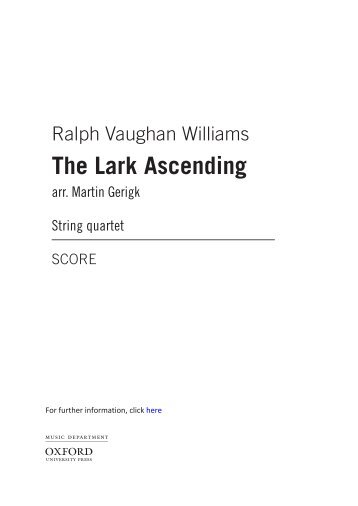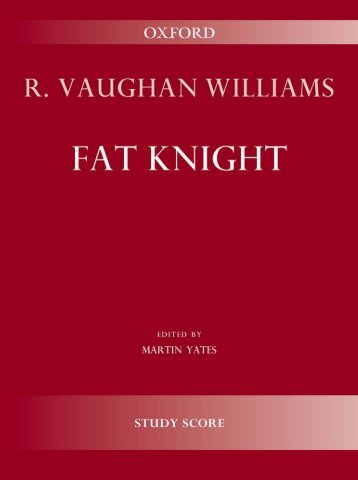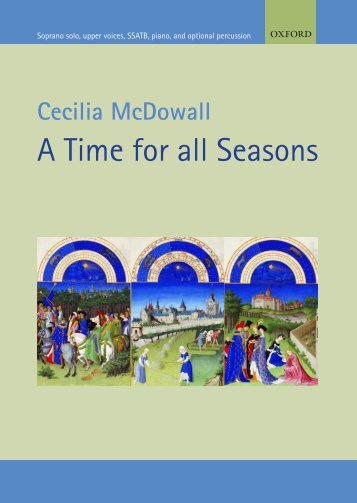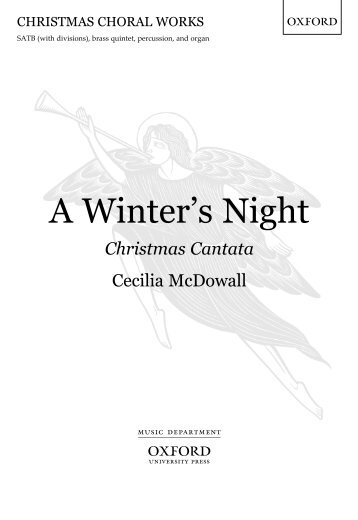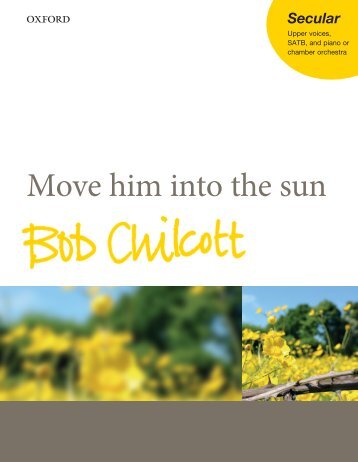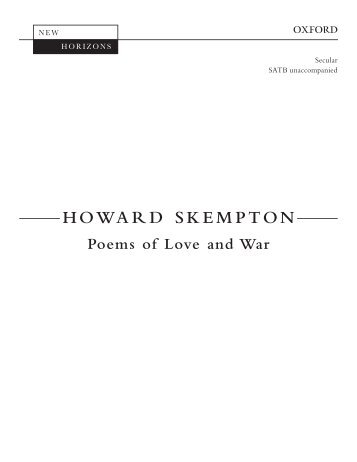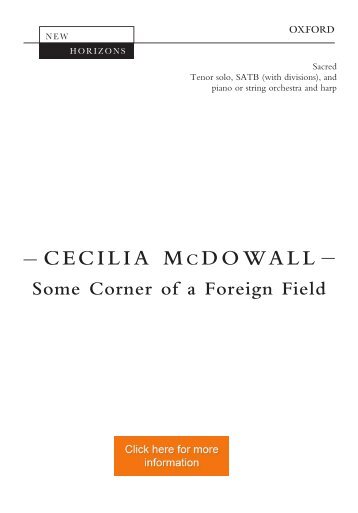
Oxford Programming by Theme
Oxford University Press is proud to publish musical works by some of the most significant composers of the 20th and 21st centuries, with a catalogue that includes a broad range of choral, orchestral and chamber music.

Themes
Select a theme from the list below to view playlists and perusal scores.
- Animals
- Colours
- Dances
- Day and Night
- Elements: Earth
- Elements: Fire
- Elements: Ice
- Elements: Water
- Historical Figures
- Journeys and Transport
- Life and Death
- Light and Dark
- Music about music and sound
- Myths, Legends, and Folktale
- Nature
- Royalty and Ceremony
- Rivers and Oceans
- The Seasons
- War and Conflict
R. Vaughan Williams - Serenade to Music
Introduction In January
Introduction In January 1938 Vaughan Williams received a request from Sir Henry J.Wood for a work to be performed at a concert planned for 5 October 1938, to mark the fiftieth anniversary of his début as a conductor.Vaughan Williams replied that it would be an honour to compose something ‘in your praise’ and wondered if they should ask the Poet Laureate, John Masefield, for a text.Wood replied on 25 January that he did not want anything in praise of himself but rather ‘a choral work that can be used at any time and for any occasion. I would not think of asking you to write a work that might only be used the once, which would naturally be the case were it written round myself.’Wood later suggested a work for sixteen singers who had sung many times with him at festivals and the Promenade Concerts.Vaughan Williams reported this to his friend Ursula Wood (who in 1953 was to become his second wife), adding that he had always wanted to set the Jessica and Lorenzo scene (Act V, Scene 1) from Shakespeare’s The Merchant of Venice. ‘Eight Jessicas and eight Lorenzos?’ she asked.‘No, just a little bit for each voice.’ Vaughan Williams sent Wood the manuscript of the work on 2 June.The sixteen singers were: Sopranos Altos Tenors Basses Isobel Baillie Margaret Balfour Parry Jones Norman Allin Stiles Allen Muriel Brunskill Heddle Nash Robert Easton Elsie Suddaby Astra Desmond Frank Titterton Roy Henderson Eva Turner Mary Jarred Walter Widdop Harold Williams The parts allotted to each of these singers are indicated in the score by their initials, including their participation in choral passages. It is uncanny how Vaughan Williams captured the vocal characteristics of all sixteen in such brief phrases and we are fortunate that their artistry is preserved in the recording made a few days after the first performance.Who that heard them could fail to recognise Heddle Nash in ‘Look how the floor of heaven is thick inlaid with patines of bright gold’? Or Eva Turner at ‘How many things by season season’d are to their right praise and true perfection’? Or Isobel Baillie’s ethereal ‘Of sweet harmony’ with which the work ends? Yet the marvel is that when later singers perform these passages they seem by alchemy to absorb the spirit of the originals while retaining their own individuality. The Serenade can be performed by four solo singers (soprano, alto, tenor, and bass) and chorus or all the solo parts may be sung in chorus.There is also a version for orchestra without voices, made at Wood’s suggestion in 1939. As Wood hoped, the Serenade has outlived the occasion for which it was written and is widely regarded as one of the most beautiful and inspired of all settings of Shakespeare. Perusal Score Not for Performance Michael Kennedy 2008
SERENADE TO MUSIC How sweet the moonlight sleeps upon this bank! Here will we sit and let the sounds of music Creep in our ears: soft stillness and the night Become the touches of sweet harmony. . . . Look how the floor of heaven Is thick inlaid with patines of bright gold: There’s not the smallest orb that thou behold’st But in his motion like an angel sings, Still quiring to the young-ey’d cherubins; Such harmony is in immortal souls; But, whilst the muddy vesture of decay Doth grossly close it in, we cannot hear it. Come, ho! and wake Diana with a hymn: With sweetest touches pierce your mistress’ ear, And draw her home with music. I am never merry when I hear sweet music. The reason is, your spirits are attentive: . . .The man that hath no music in himself, Nor is not mov’d with concord of sweet sounds, Is fit for treasons, stratagems and spoils; The motions of his spirit are as dull as night, And his affections dark as Erebus; Let no such man be trusted. Music! Hark! . . . It is the music of the house. Methinks it sounds much sweeter than by day. Silence bestows that virtue on it . . . How many things by season season’d are To their right praise and true perfection! Peace, ho! The moon sleeps with Endymion, And would not be awak’d! . . . Soft stillness and the night Become the touches of sweet harmony. Perusal Score Not for Performance (William Shakespeare, c.1564–1616, The Merchant of Venice)
- Page 1 and 2: 4 Ralph Vaughan Williams Serenade s
- Page 3: 1 Great Clarendon Street, Oxford OX
- Page 7 and 8: 6 17 3
- Page 9 and 10: G 8 40 sounds sounds so
- Page 11 and 12: 0 10 S. SOLO 52 har har
- Page 13 and 14: 12 74 an - - - gel sings
- Page 15 and 16: S. A. T. B. 14 89 H H
- Page 17 and 18: 111 dim. 115
- Page 19 and 20: 18 150 P N.A. The mo -
- Page 21 and 22: 20 177 day. R M.J.
- Page 23 and 24: 22 194 with En - dy - mi - o
- Page 25: 0 24 208 S. SOLO S. har
Inappropriate
Loading...
Mail this publication
Loading...
Embed
Loading...

